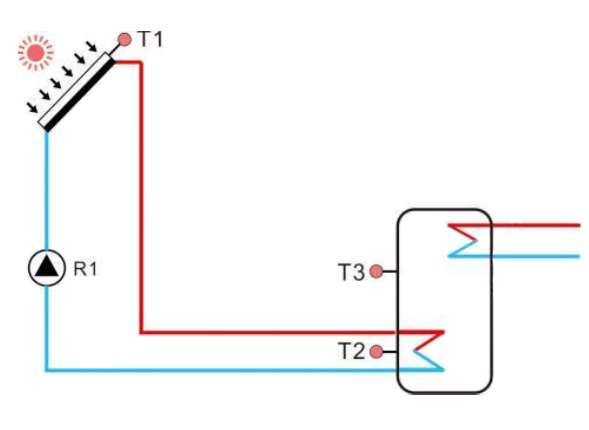Views: 0 Author: Site Editor Publish Time: 2024-03-15 Origin: Site

Solar heating and heat pumps can work together synergistically to provide a more efficient and reliable heating system for residential and commercial applications. This combination leverages the strengths of both technologies to maximize energy efficiency and minimize environmental impact. Here's how solar heating and heat pumps can complement each other:
Solar Thermal Collectors:
Solar heating typically involves the use of solar thermal collectors, such as flat-plate collectors or evacuated tube collectors, to capture sunlight and convert it into heat. These collectors are installed on the roof or another suitable location and absorb solar radiation, which heats a fluid (usually water or a special heat-transfer fluid) circulating through the system.
Solar Thermal Storage:
The heat collected by the solar thermal collectors can be stored in a thermal storage system, such as a solar hot water tank. This allows for the accumulation of heat during sunny periods for later use when the sun is not shining, such as during the night or on cloudy days.
Integration with Heat Pumps:
Heat pumps are devices that transfer heat from a low-temperature source to a higher-temperature space. They can extract heat from the air, ground, or water. By integrating a heat pump with a solar heating system, the heat pump can utilize the stored solar thermal energy as one of its heat sources.
Dual Source or Hybrid Heat Pumps:
Some heat pumps are designed to operate with dual heat sources, often referred to as dual source or hybrid heat pumps. In this configuration, the heat pump can draw heat from both the solar thermal system and another source, such as ambient air or the ground. This flexibility allows the system to operate efficiently even when solar radiation is insufficient.
Increased Efficiency and Reliability:
Integrating solar heating with a heat pump increases the overall efficiency of the heating system. The solar thermal collectors provide a renewable and free heat source during sunny periods, reducing the reliance on conventional energy sources. When solar energy is insufficient, the heat pump can take over, ensuring a continuous and reliable supply of heat.
Seasonal Performance:
Heat pumps are known for their efficiency, particularly air-source and ground-source heat pumps. During colder periods when solar radiation is reduced, the heat pump can efficiently extract heat from the ambient air or the ground. This ensures that the system remains operational year-round, maintaining comfort in the building.
Environmental Benefits:
The combination of solar heating and heat pumps contributes to a reduction in greenhouse gas emissions compared to conventional heating systems. By relying on renewable solar energy and the energy efficiency of heat pumps, the overall carbon footprint of the heating system is minimized.
In summary, the integration of solar heating and heat pumps creates a hybrid heating system that optimizes energy utilization and enhances reliability. This approach is particularly effective in regions with varying weather conditions, where the combination of solar energy and heat pump technology ensures a consistent and eco-friendly heat supply for both residential and commercial applications.